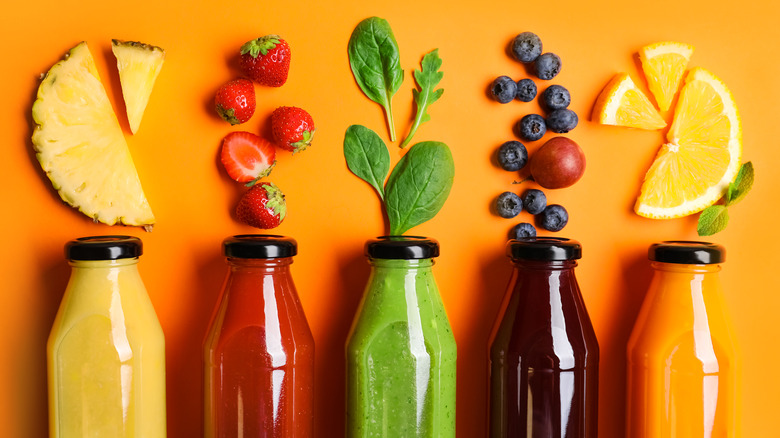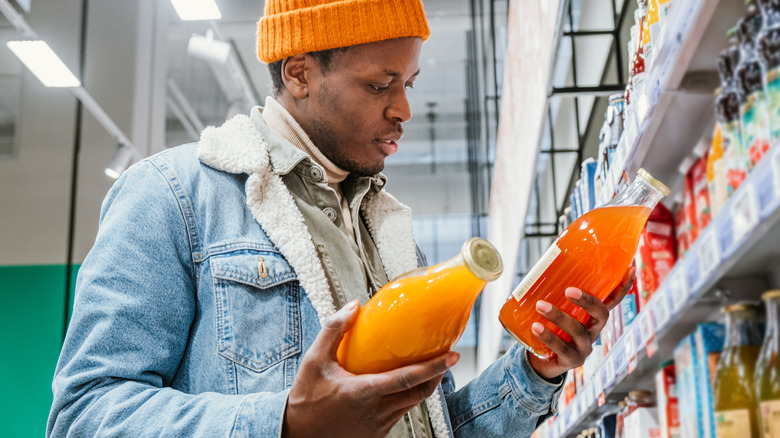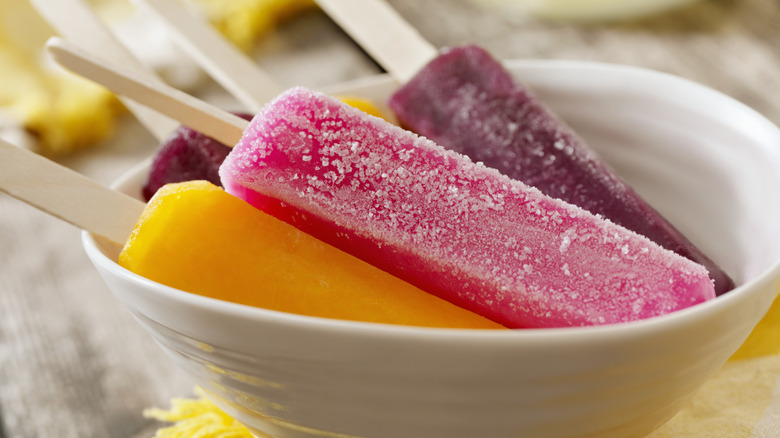What Does It Mean When Juice Is 'From Concentrate'?
Most people would agree that fresh-squeezed juice from fruits and vegetables is the ideal choice. However, it's not always practical and can take up a lot of time and energy. For example, try ordering fresh-squeezed orange juice at a restaurant. You'll quickly discover fresh O.J. is generally more costly than opting for bottled or frozen versions. A middle-ground option often seen on labels is "100% juice, not from concentrate," which raises the question: What is juice concentrate, and why might you prefer your juice not to be made that way?
Fortunately, the answer is relatively straightforward. Juice concentrate is made from real fruit or vegetables, just like any other juice. The difference lies in the processing. While not-from-concentrate juices are derived directly from fresh fruits, from-concentrate versions have most of their water removed. Since juice can contain up to 90% water, extracting it results in a compact, slushy mixture that can be reconstituted later for drinking.
When you see a "from-concentrate" label on a bottle of juice at the grocery store, it means that water has been added back to the concentrate to reconstitute it, so to speak. Consumers can also purchase frozen concentrate and add water at home. Although all these options are juice-based, they can differ significantly in taste, texture, and even nutritional value. These differences often hinge on whether any additives are introduced during the concentrate's processing.
Some concentrates include additives
When squeezing oranges or lemons yourself, you know the cup contains 100% pure juice. You get the aroma, full fresh taste, and juicy bits of fruit that all scream: fresh and natural! Buying juice at the supermarket doesn't guarantee the same experience, but reading labels can help. A bottle of from-concentrate juice can still contain 100% original juice and be labeled as such, as long as any added sweeteners come from natural fruit sugars.
However, it's common for concentrates to include additives aimed at restoring lost flavor and color. Specifically, juices made from concentrates may contain added sugar, high-fructose corn syrup, ascorbic acid, preservatives, artificial colors, and the elusive "natural flavors." The FDA permits natural flavors to come from a variety of sources, including plants, spices, roots, herbs, fruits, vegetables, meats, seafood, dairy products, and more.
Manufacturers of concentrates may also use what are called "flavor packs," which contain artificial compounds made from fruit byproducts. Vegetable juice concentrates, such as those made from tomato, beetroot, kale, and carrot, may also have added salt.
Be cautious of labels like "juice drinks" or "juice-flavored beverages," as these options likely contain the least amount of juice and have a higher likelihood of added sweeteners and reduced nutritional value. Ultimately, it's important to know what you're consuming. Stay informed about industry terms and decide whether from-concentrate juices meet your needs.
Ways to use juice from concentrate
Juice concentrates aren't just for creating delicious and accessible fruit or vegetable drinks. These slushy, concentrated essences of fresh produce stand ready to transform both sweet and savory dishes, desserts, sauces, and cocktails. They offer a quick and easy way to infuse flavor, texture, and nutrition into a wide variety of recipes.
One of the most obvious homemade treats that benefit from juice concentrates is popsicles. To create these handheld frozen delights, simply mix a few spoonfuls of concentrate into your favorite recipe — such as this one for watermelon and parsley ice pops — for an intense burst of flavor. Savory dishes, like this orange-glazed grilled tofu, can also be elevated with frozen orange juice concentrate, as can many slow-cooker meals. Concentrates allow for flavor enhancement without the need for excess liquid. The same principle applies to vegetable side dishes, which can become bland and watery when cooked only in water or broth. Juice concentrates also serve to enliven granola mixtures, lemon cakes, glazes, and meat sauces, eliminating the need to juice an endless number of citrus fruits.
And let's not forget the magical cocktail twist. Sweetening any mixed drink with fruit concentrates is straightforward, but they are especially effective in mimosas, boozy fruit punches, and piña coladas.



